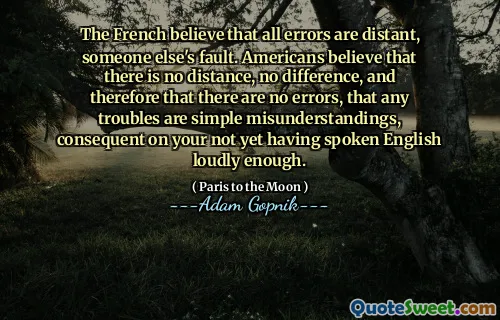
That tingle in the brain is called a word. It bats itself against its fleshy bounds.
This evocative quote captures the intense, almost physical sensation that can accompany the sudden emergence or realization of a word or idea within the mind. It suggests that language isn't merely abstract but deeply intertwined with our bodily sensations, emphasizing how powerful and visceral the process of thinking and articulating words can be. The phrase "tingle in the brain" portrays a spark of inspiration or a moment of mental clarity, while describing it as "bats itself against its fleshy bounds" personifies the mind as both a container and a battlefield for thoughts. Such imagery reflects the complexity of language as both an internal and external phenomenon—how words can surge within us, battling for expression, often causing physical sensations rooted in neural activity. It prompts reflection on the intimate connection between language and bodily sensation, reminding us that thought and speech are not just cognitive functions but embodied experiences. This perspective elevates our understanding of how language shapes our reality, impacting us physically and emotionally. It also highlights the creative struggle involved in expressing inner thoughts, emphasizing that words are not always easy to contain or control. This quote resonates deeply with anyone who has ever felt that burst of inspiration or the frustration of trying to grasp a fleeting idea, embodying both the beauty and the challenge of linguistic expression. Such a vivid depiction invites us to appreciate the intricate dance between mind and body in the process of intellectual and emotional life.





